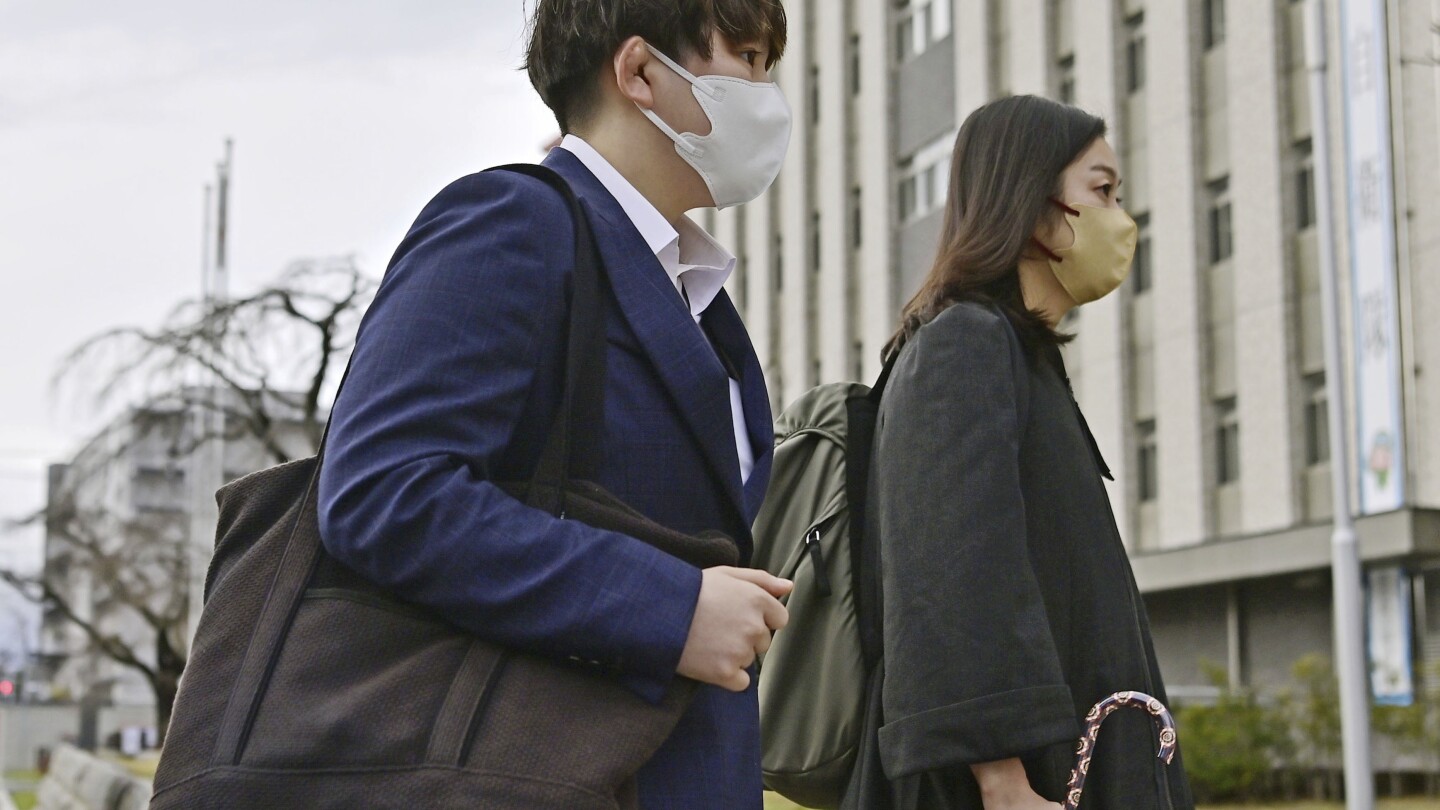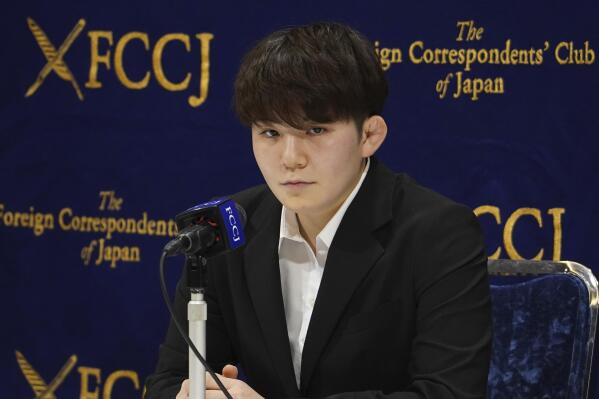TOKYO (AP) — A Japanese court on Tuesday convicted three former soldiers in a sexual assault case that authorities had dropped until the victim, a former service member, came forward demanding a reinvestigation, prompting a military-wide harassment probe.
The Fukushima District Court sentenced the former Japanese army soldiers to two years in prison but suspended the sentences for four years — meaning they won’t actually serve time in prison.
The case filed by Rina Gonoi in August 2021 was initially dropped. Nine months later, she came forward — a rare step in a country that often lacks sufficient support for sexual assault victims — and demanded the case be reinvestigated, saying the experience caused her to give up her military career.
Her revelation prompted a military-wide investigation into sexual harassment and other abuse allegations in September 2022, and prosecutors reopened her case.
The Fukushima court said Tuesday her three former supervisors — Shutaro Shibuya, Akito Sekine and Yusuke Kimezawa — each pressed the lower part of their bodies against her at an army training facility in August 2021, and it found them guilty of indecent assaults.
The three defendants had pleaded not guilty, denying any intent of indecency even though they admitted to pushing her down onto a bed, NHK television said.
In response to Gonoi’s revelations, the Ground Self Defense Force in September 2022 acknowledged some of the misconduct and apologized, and then fired five servicemen, including the three defendants, while punishing four others.
The three defendants at that time offered a written apology, which Gonoi later said lacked sincerity. The three men said during their criminal trial that they had apologized because the GSDF ordered them to do so, according to Kyodo News agency.
Gonoi, who was inspired to join the army after surviving the March 2011 massive earthquake and tsunami in her hometown in Miyagi prefecture as a child, was first assigned to a Fukushima unit in April 2020. But she quickly became a target of sexual misconduct, she said. Her male superiors repeatedly asked about her breast size, hugged her and made unnecessary physical contact, such as trying judo techniques on her, Gonoi said.
Sexual misconduct complaints are often disregarded in Japan, which consistently ranks near the bottom in international gender equality surveys.
Victims also tend to face criticisms for speaking up. Gonoi said she has been attacked on social media for coming forward, but that she did so because she wanted to prevent similar problems for other female service members.
Gonoi has separately filed a damage suit against the three defendants, two other perpetrators and the government, saying she felt their earlier apologies were insincere. She is seeking 5.5 million yen ($37,800) from the perpetrators and 2 million yen ($13,740) from the government, saying it failed to prevent the assaults, properly investigate or respond appropriately.
Separately, an air force serviceperson filed a lawsuit in February against the government seeking about 11.7 million yen ($75,600) in damages, saying it had failed to protect her from verbal sexual harassment from a male colleague and covered up the problem for more than a decade.


